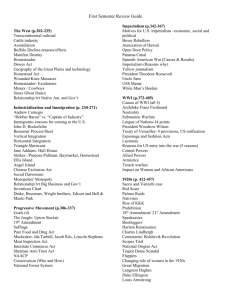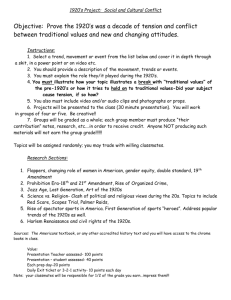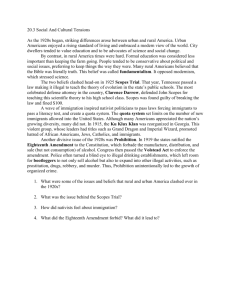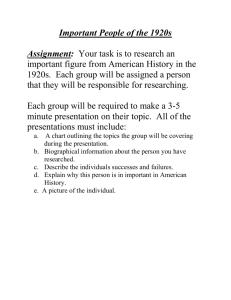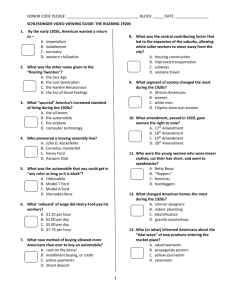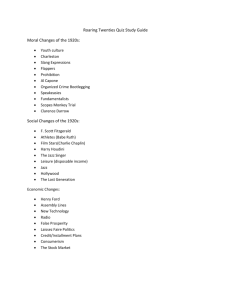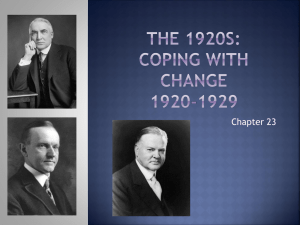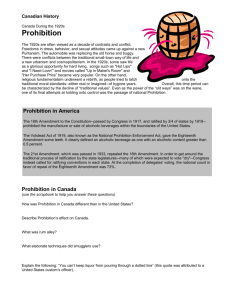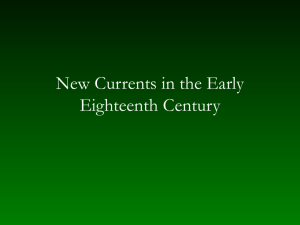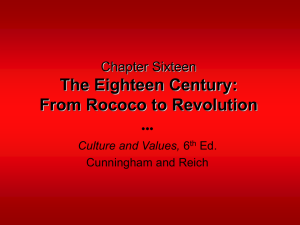1920's Vocab
advertisement
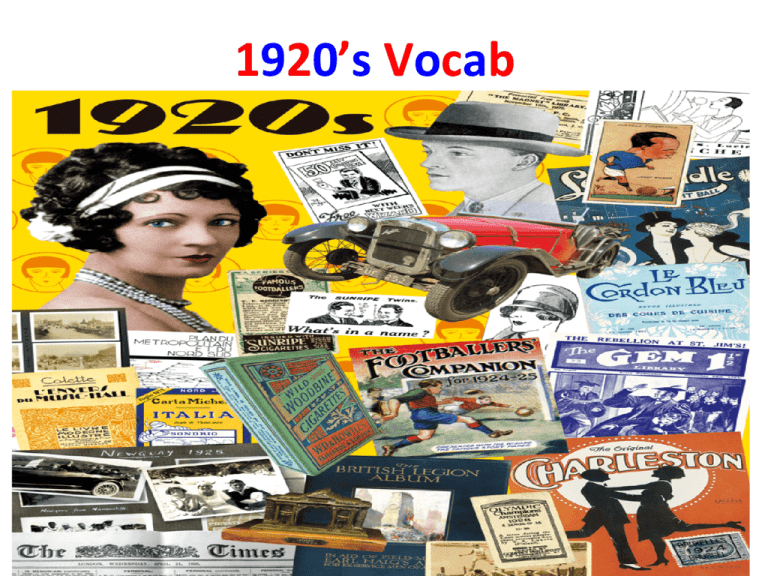
1920’s Vocab • Communists: People who believe there should be no class system and believe that all industries should be publically owned and run by the government • Isola5onism: A na9onal policy of avoiding involvement in world affairs • Radical: Extreme approach • Socialism: A social system based on government control of the produc9on and distribu9on of goods • Suburbs: Residen9al areas close to surrounding ci9es as a result of improvements in transporta9on • Capitalism: Economic system based on private property and free enterprise • Anarchist: Person who believes there should be no government • Deport: To send out of a country aliens who are considered dangerous • Red Scare: A period where the government went a@er communists and other radical views • Calvin Coolidge: A president that went back to Laissez-­‐Faire during the 1920s and was the first president to speak to the na9on over the radio • Lease: To hand over property in return for rent • Warren G. Harding: A president that went back to Laissez-­‐Faire policies during the 1920s and promised a return to “normalcy” a@er the Great War. • Teapot Dome: A scandal where a bribery incident took place with a cabinet member • Recession: Downward turn in business ac9vity • Produc5vity: How much work each worker does • Gross Na5onal Product (GNP): Total value of all goods and services produced by a na9on during a year, regardless of where produc9on takes place • Installment Buying: A system of paying for goods in which customers promise to pay small regular amounts over a period of 9me • Henry Ford: A man who created an affordable car, the Model T, and used assembly line methods • Flapper: A young woman of the 1920s who defied conven9ons in behavior and dress by cuTng her hair short, wearing short skirts, and drank and smoked in public • Mass Media: Types of communica9on that reached large numbers of people (ex. TV, newspapers, radio) • Expatriate: A person who gives up his/her home country and chooses to live in another country • Prohibi5on: A na9onwide ban on the manufacture, sale, and transporta9on of liquor in the U.S. that went into effect when the eighteenth amendment was ra9fied in 1919. • Na5vism: The belief that those born in a country are superior to immigrants • Quota System: An arrangement placing a limit on the number of immigrants from each country • Evolu5on: The scien9fic theory that humans and other living things have evolved over 9me • Harlem Renaissance: A cultural movement that sparked negro literature and music • Eighteenth Amendment: Prohibi9on of alcohol • Twenty first Amendment: Repealed the eighteenth amendment, the prohibi9on of alcohol
